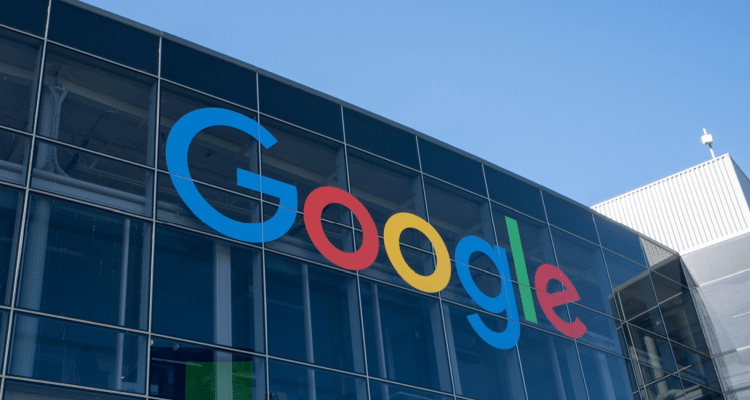Google Faces UK Monopoly Probe: Will Ad Tech Dominance Crumble?

Google’s ad tech dominance is under scrutiny by the UK’s CMA, facing accusations of monopolistic practices. This investigation could reshape the digital advertising landscape.
Google’s dominance in the ad tech sector has attracted regulatory scrutiny, particularly from the UK’s Competition and Markets Authority (CMA), which accuses the company of abusing its market position. Allegations include favoring its own services over competitors’, potentially harming smaller UK publishers and advertisers. As regulators in both the US and Europe also investigate Google’s practices, the consequences could reshape not just Google’s business model, but the entire digital advertising ecosystem.
Google’s Monopoly Under Fire in the UK
Google, a global tech giant, is under significant regulatory pressure from the UK’s Competition and Markets Authority (CMA) due to concerns over its dominance in the advertising technology (ad tech) sector. The CMA alleges that Google may have violated competition laws by monopolizing the market, restricting competition, and unfairly benefiting from its market power. This case adds to mounting global scrutiny from both US and European regulators. The potential outcome of these investigations could fundamentally reshape the ad tech industry, and, more broadly, Google’s future in the sector.
The Backbone of Google’s Ad Tech Dominance
Google’s commanding presence in digital advertising is based on its comprehensive control over the ecosystem. It collects massive amounts of user data through its search engine, sells ad space, and uses advanced algorithms to connect advertisers with publishers. This full-scale control gives Google unprecedented power to influence pricing and distribution within the industry. In 2022 alone, Alphabet Inc. earned around $225 billion from online ads, showcasing the company’s vast reach and control.
However, the CMA’s primary concern is not Google’s efficiency, but its alleged abuse of this dominance. The agency contends that Google prioritizes its own services at the expense of competitors, which could harm UK advertisers and publishers by raising costs and reducing revenue opportunities for smaller players in the market. Such practices are seen as stifling competition, a key concern for regulators who argue that Google may be in violation of UK competition laws.
The Stakes for UK Publishers and Advertisers
The CMA’s investigation highlights the potential impact Google’s practices could have on UK publishers and advertisers. By allegedly giving preference to its own services, Google may be inflating prices for advertisers and limiting the earning potential of publishers. Smaller businesses, which rely on a fair and open digital advertising market, could be especially vulnerable to these practices.
Juliette Enser, the CMA’s interim executive director of enforcement, emphasized the importance of competition in the ad tech sector, stating that both publishers and advertisers deserve a fair deal. Without competition, innovation and consumer choice may be stifled, ultimately harming the broader digital ecosystem.
If these allegations prove true, Google’s monopoly could distort the ad tech industry by reducing innovation and limiting consumer options. UK competition laws exist precisely to prevent such market distortions, and Google’s actions may be setting a dangerous precedent for other tech giants.
Google’s Defense and Global Regulatory Scrutiny
Google, unsurprisingly, disputes the CMA’s claims. Dan Taylor, Google’s VP of Global Ads, dismissed the accusations as a “flawed interpretation” of the ad tech sector. According to Google, its systems benefit both advertisers and publishers by offering an integrated platform that simplifies digital advertising processes. From Google’s perspective, its practices are crucial for keeping online content free and accessible to users.
Nevertheless, the scrutiny is not limited to the UK. In the US, the Department of Justice (DoJ) has launched its own investigation into Google’s alleged monopolization of the ad tech industry. European regulators are also watching closely, with the European Commission suggesting that behavioral remedies may not be sufficient to curb Google’s market dominance. These ongoing cases could set a global precedent, with far-reaching consequences for Google’s operations.
What Lies Ahead for Google’s Ad Tech Empire?
If the CMA’s investigation concludes that Google has indeed violated competition laws, the consequences could be severe. The CMA has the authority to impose fines of up to 10% of a company’s global revenue, which could amount to billions of dollars for Alphabet Inc. Beyond financial penalties, Google may be forced to make substantial changes to its ad tech operations, potentially separating certain services to prevent conflicts of interest.
The ramifications of such a ruling could extend far beyond the UK, with other countries likely to follow suit. This would not only disrupt Google’s business model but also reshape the entire digital advertising landscape. Smaller competitors might finally have the opportunity to challenge Google’s dominance, creating a more competitive and innovative market.
(Disclaimer: This article is for informational purposes only. The opinions expressed in this article do not constitute legal or financial advice and are not intended to diagnose or address any specific issues related to competition law or digital advertising. Readers are encouraged to seek professional guidance before making decisions based on the information presented.)
Also Read: Microsoft Cybersecurity Summit Unveils Plans for Stronger Global Resilience After Major IT Outage










